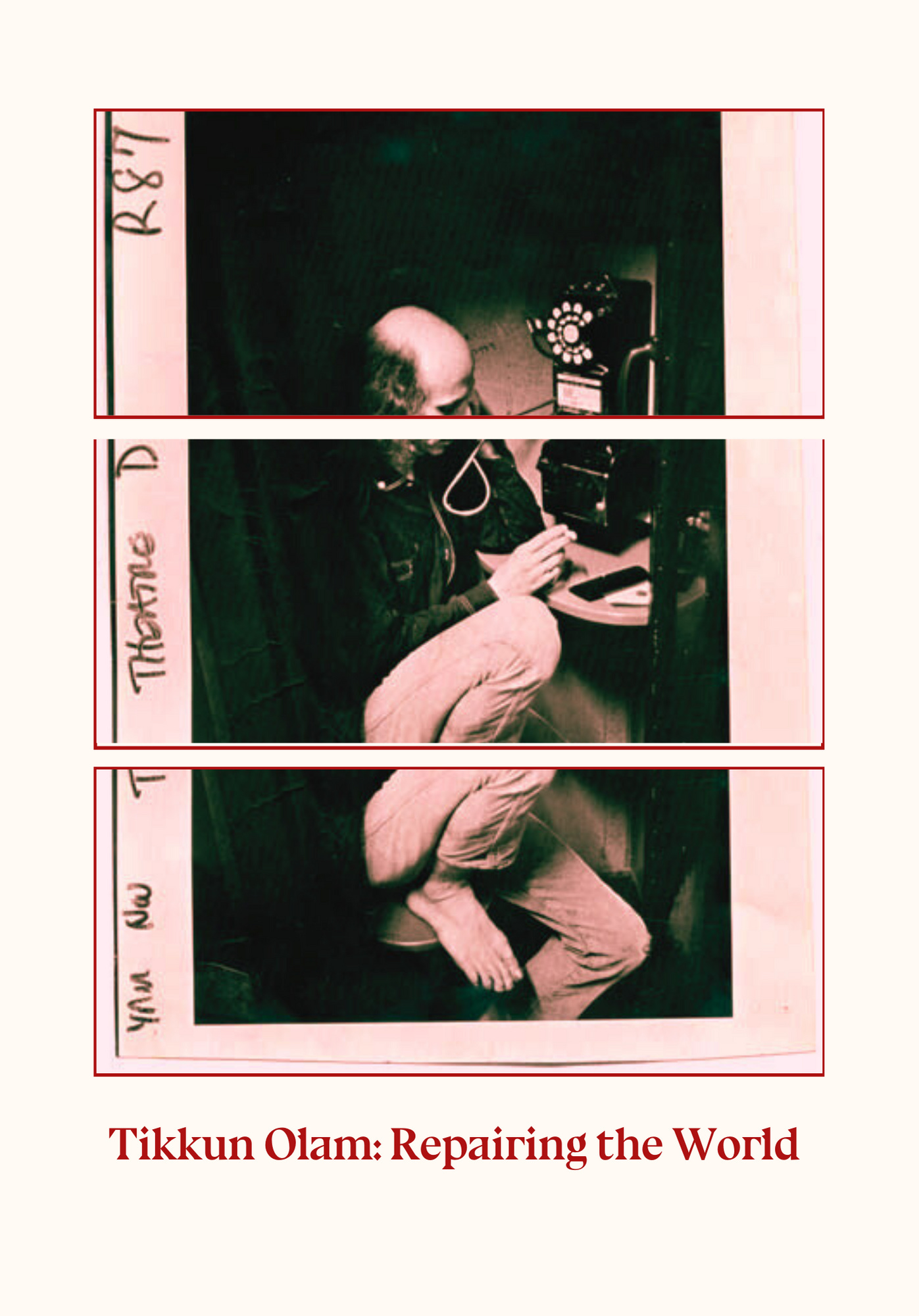Tikkun Olam: Living Jewish Legacy
We asked long-time Living Theatre company member Lois Kagan-Mingus to talk about her position as Jewish Legacy Chair
In 1947 Judith Malina and Julian Beck, co-founders of The Living Theatre, shared a commitment to express their voices through theatre by creating rituals, inviting audience participation and ultimately reshaping how plays are made and seen. The Living Theatre has inspired four generations of actors and audience members since then. This was and is the work of Judith and Julian's heart. The Jewish Legacy Chair is a new position to honor that spirit and vision.
Storytelling and theater in Jewish culture historically served as a way to share thoughts, experiences, values, strengths and hopes. This continues and is reflected in the life of The Living Theatre and in our larger collective universal lives as well. Judith often said, "Find a way. Make it work." She found that way, that journey, with Julian and also with Hanon Reznikov, her second husband.
Judaism encourages the asking of questions. At its core, The Living Theatre puts on the stage the why, where, what and hows with a visionary approach, inspiring the audience to ask questions, to "Find a way. Make it work."
Congressman John Lewis used the phrase "Good trouble." Holocaust diarist Anne Frank wrote, “In spite of everything, I still believe that people are really good at heart."
Judith, Julian, Hanon, John Lewis, Anne Frank and thousands of others past and present reflect the Hebrew phrase tikkun olam, translated to "repairing the world."
Judith, the daughter of a rabbi, dedicated herself to this important aspect of Jewish life. In present day Jewish life, tikkun olam is coupled with social action and seeking social justice. Continuing this vital legacy by helping to repair the world is the mission of The Living Theatre.
There is no limit to repairing through peaceful means for all people.
"...manifest your power to make the best come true and be no dream."*
*Excerpt from And Be No Dream, poem by Judith Malina






Judith Malina and Julian Beck were heavily influenced by the genius of Jewish philosopher Martin Buber. Judith once told me that she and Julian met Buber at an event in New York, where they praised him for his seminal work, "I and Thou." Judith looked at Martin Buber as a pupil looks at a Hasidic Master, as a teacher.
Martin Buber once wrote, "This is the kingdom of God, the kingdom of danger and of risk, of eternal beginning and eternal becoming, of opened spirit and of deep realization, the kingdom of holy insecurity."
The Living Theatre is a theatrical arts group that's not afraid to take a risk, and no stranger to danger.
Judith started her acting career in the Yiddish Theater circuit in the Lower East Side of New York as a young girl. That's where she first met and befriended the famously hilarious comedian Jerry Stiller.
Judith told me once that she remembered singing songs in Yiddish on stage as a little girl, helping her father Rabbi Max Malina to raise money to spread awareness of the pending doom in Europe facing the Jewish people, the Shoah. Rabbi Malina sent shampoo and soap bottles to Germany, to the Jewish communities there, with a secret message on a small slip of paper, hidden in the bottle cap. The message read, "Do you know what's happening to your neighbors? Get out while you still can."
The inspiration for Judith and Julian’s masterpiece of experimental theater, “Paradise Now,” was strongly influenced by Jewish mysticism.
Judith loved being a Jew; she wrote a book of poetry called "Poems of a Wandering Jewess" in 1982; she lit Shabbat candles every Friday; she attended The Shul of New York on High Holidays; she contemplated the meanings of Jewish texts, as evidenced by her play "Korach," a play based on the Psalms of The Sons of Korach.
This Rosh Hashana, I remember my friend Judith Malina, and the Jewish values of peace, and love, and Tikkun Olam that she embodied.